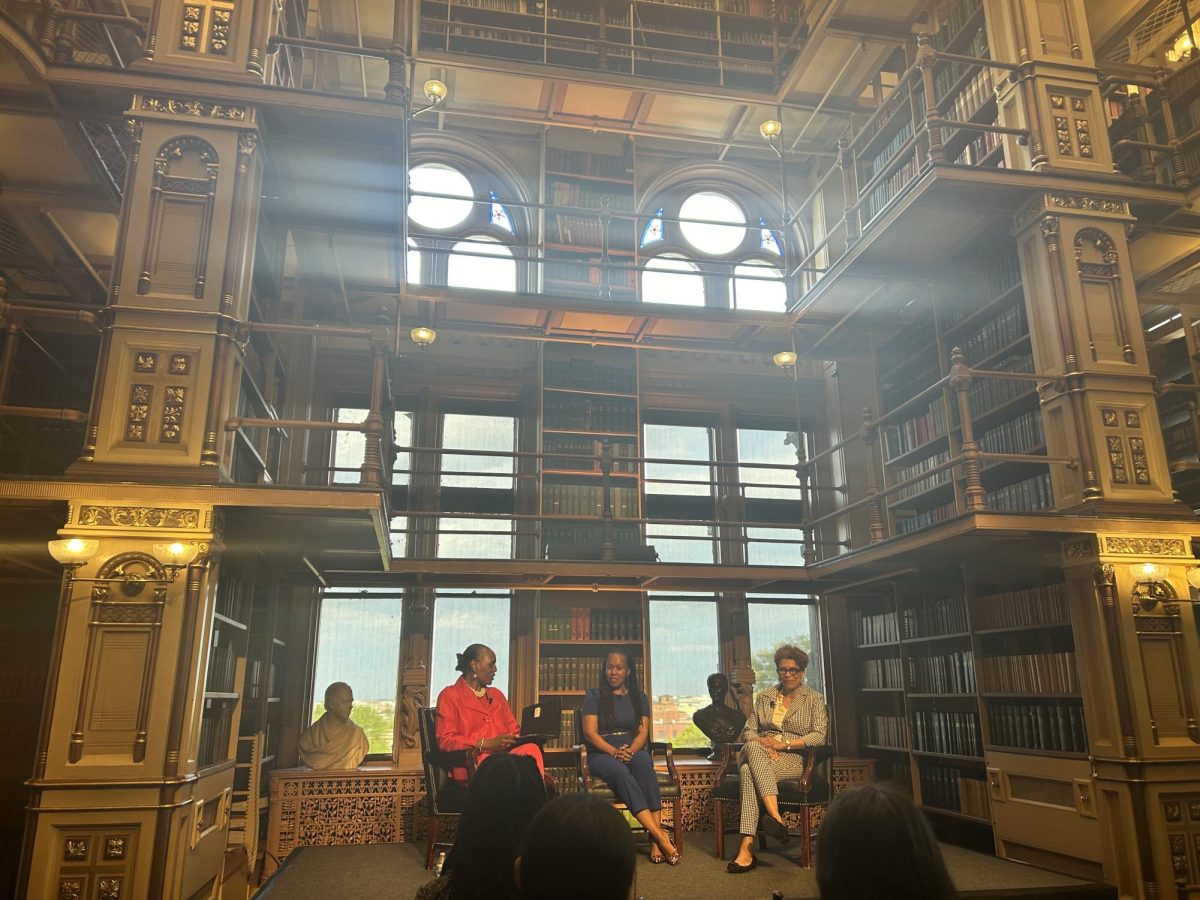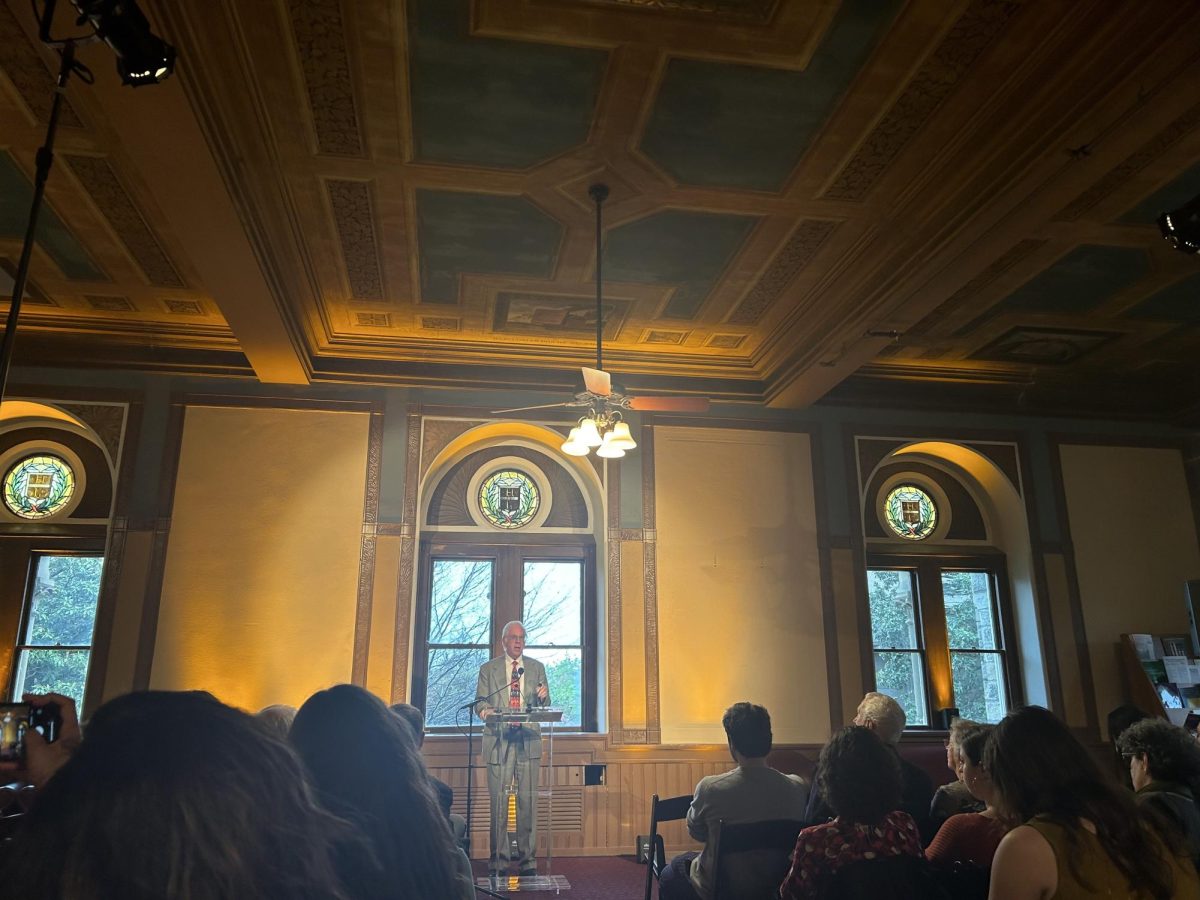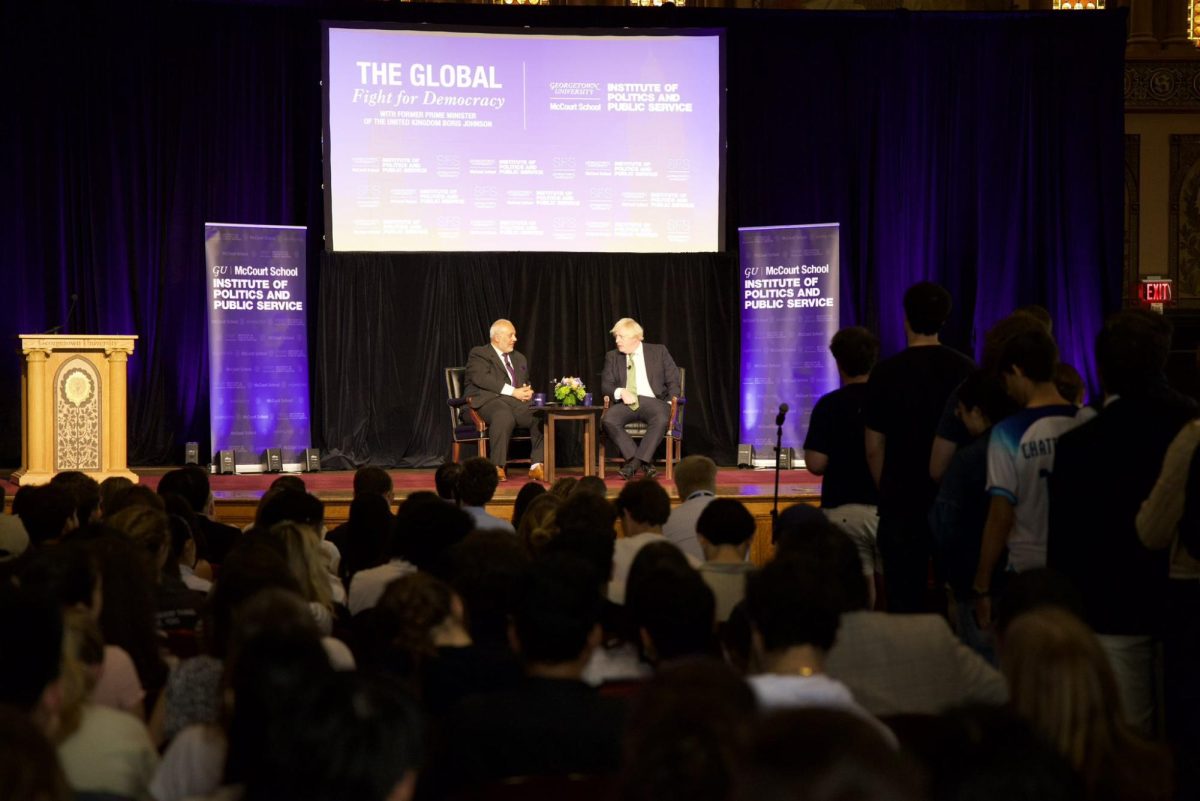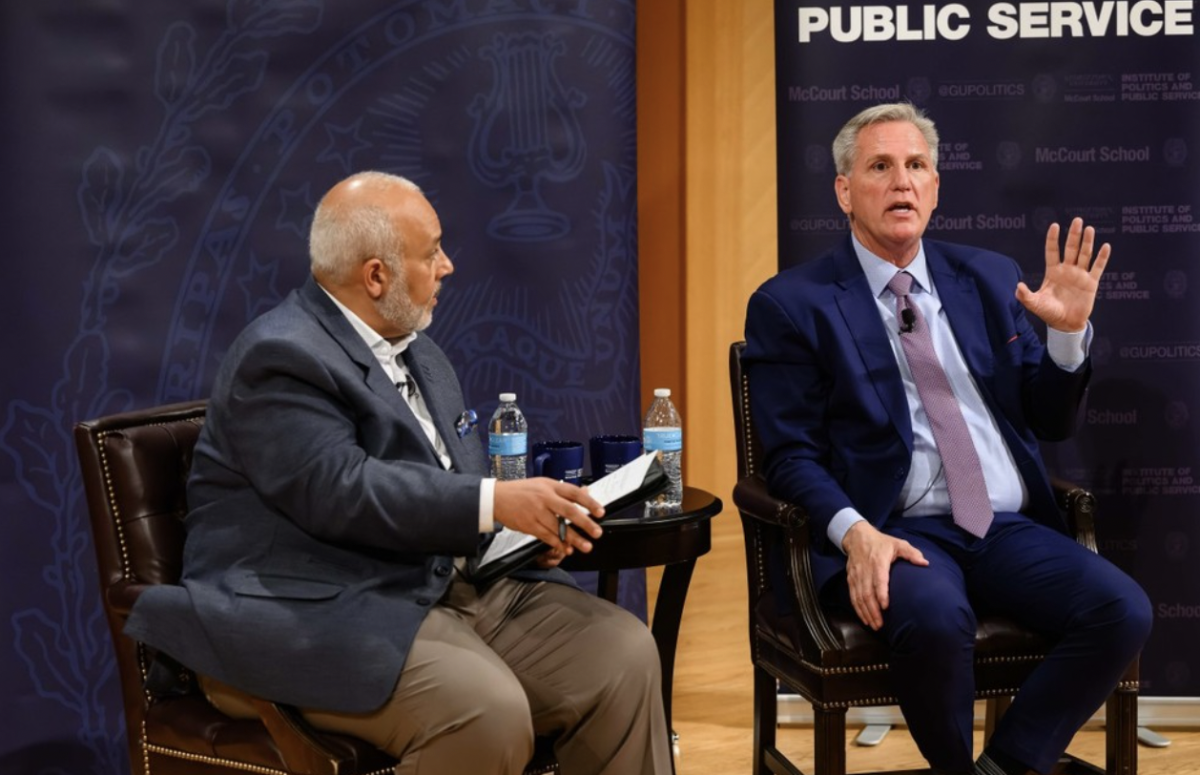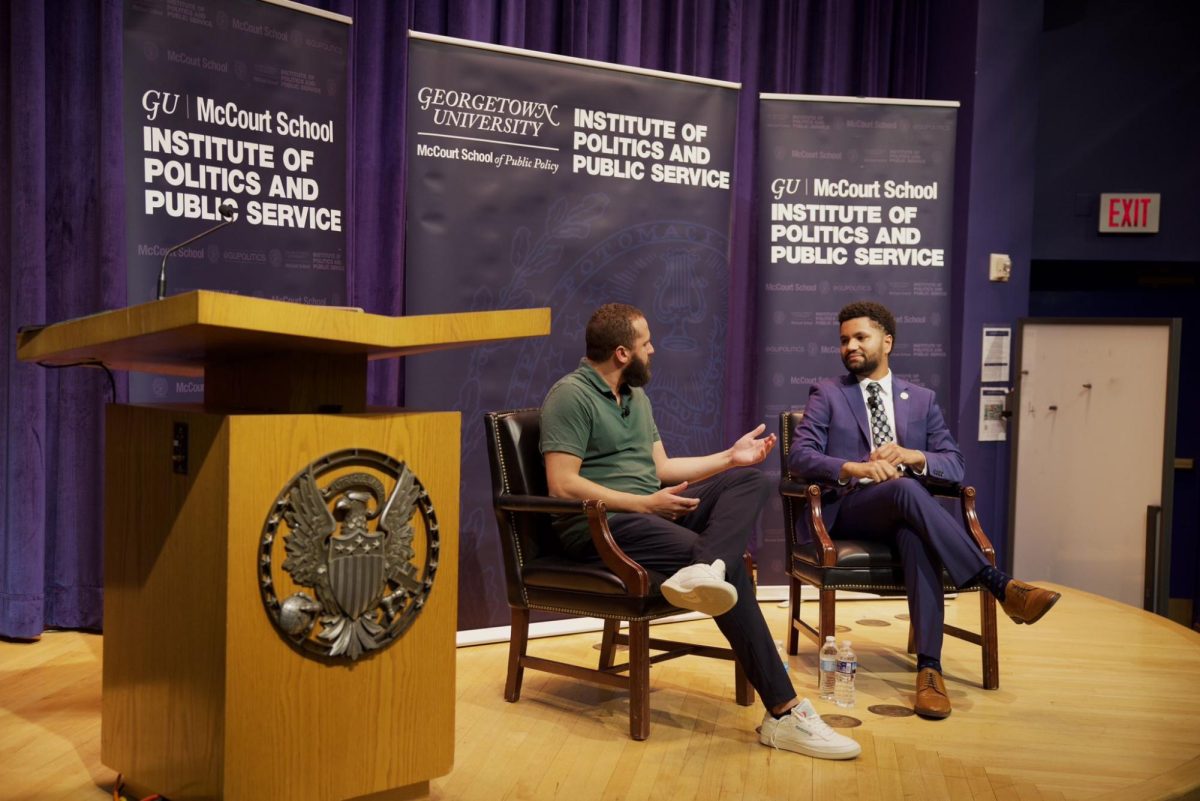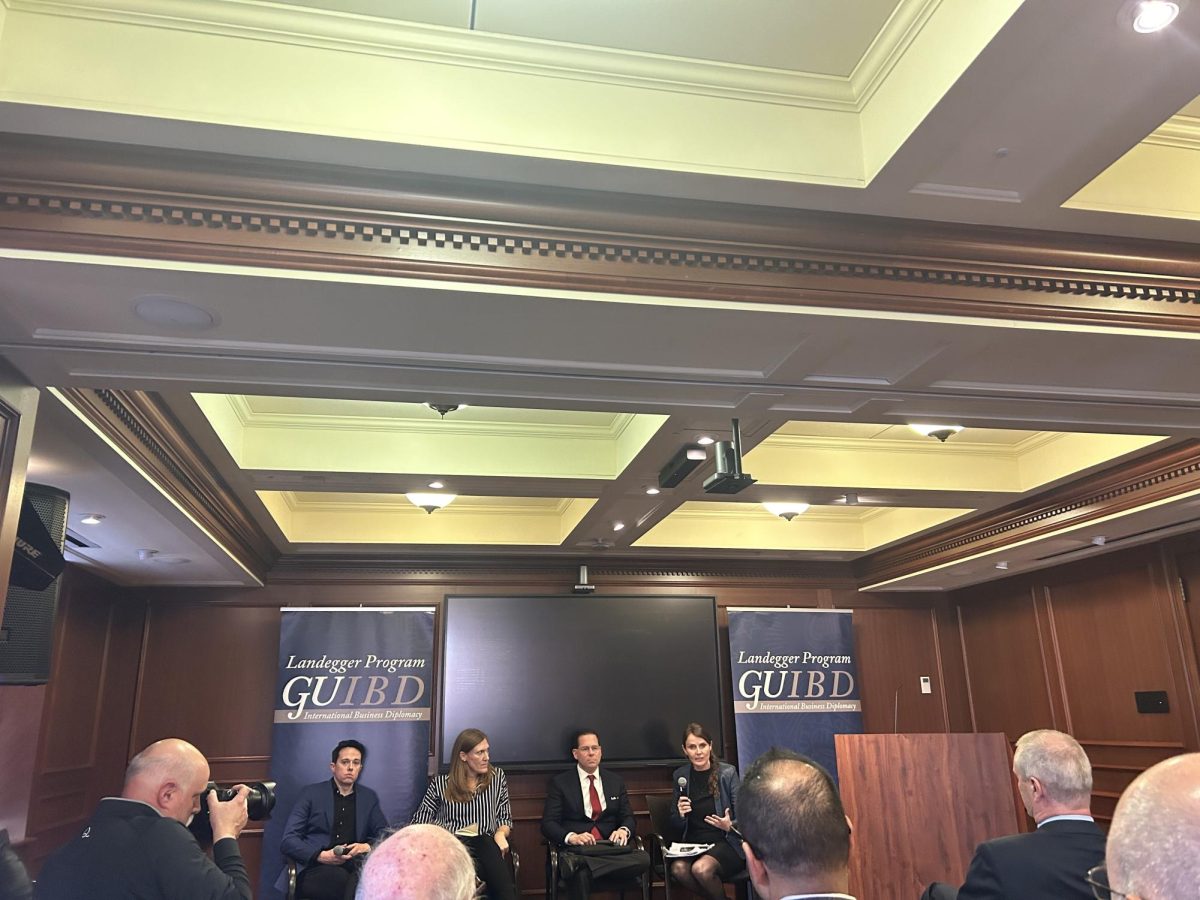Linguistics professors and other academic experts discussed the political misuse of language and the current state of public discourse in a March 14 event.
The event, hosted by Georgetown University’s Free Speech Project and the Future in Humanities Project — a collaboration between the Georgetown University Humanities Initiative and Oxford University — was a part of the “Free Speech at the Crossroads: International Dialogues” series, which seeks to provide international perspectives on global challenges to free expression. Michael Scott, senior dean at Oxford’s Blackfriars Hall, and Sanford J. Ungar, director of the Free Speech Project, moderated the event.
The panelists began by discussing political language, which they said is currently adversarial, and the influence of lies on media and politics.
Georgetown linguistics professor Deborah Tannen said politicians often take extreme positions to make a lasting point, which often leads to accusations of dishonesty between politicians.
“So much of what we hear as not true; we wouldn’t actually say is a lie,” Tannen said at the event. “A lie means you’re intentionally saying something that’s not true for some end. But I think the issue of what can you believe, and what is true, and what is not true, that’s a challenge that people have been facing forever,” Tannen said at the event.
The conversation then shifted into a deeper discussion on the influence of technology as a method to more efficiently spread false information. Jessica Mudry, chair of the School of Professional Communication at Toronto Metropolitan University, elaborated on the use of the term “alternative facts” as a way for many politicians to spread lies.
Mudry said that by labeling untruths as an alternative set of facts, politicians can utilize false information and gain social traction.
“This is the form versus content duality,” Mudry said at the event. “We can make something look objective; we can make something look scientific. This is the work that I do in objectivity — looking at if we can make a fact seem objective by having some statistics, which may be manipulated or cherry-picked.”
Mudry said modern politics primarily concentrate on the arguments between parties of different interests, rather than collaboration.
“Everybody is busy pointing fingers,” Mudry said. “Nobody is thinking, ‘Let’s cross the line and invite others into the conversation.’”
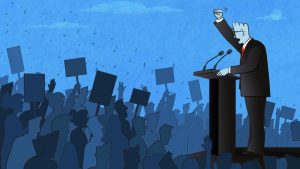
Additionally, the panelists said individualism is the root cause of the shift toward the current contentious political environment, particularly in the United States. Mundry said that with curated ads and personalized recommendations amplified by social media and news outlets, individuals have become more isolated and less likely to think of themselves as part of a common collective.
Tannen said it is crucial to try to see the differences and perspectives of others, rather than dismissing others and demonizing them.
“Stop for a moment before you think someone is doing something evil and has evil intentions, or is a stupid person,” Tannen said. “Just step back and ask, what could the world look like from their point of view? Could it be just a different use of language from their cultural background?”
The panelists also explored the changing global social standards of politically appropriate language, in which the strained political environment has changed the culture of everyday speech.
John Drakakis, an emeritus professor of English studies at the University of Stirling in Scotland, said that many in the realm of academia have become too hypersensitive toward others’ words, frequently finding them offensive when they are not intended to be.
“I think academics are getting progressively more and more thin-skinned,” Drakakis said. “I come from the thick-skinned generation where you said it, and then you ducked.”
The event concluded with a debate on the interpretation of political speech and intention in lies, including the differences between manipulating imagination, intentionally leaving out parts of the truth and a lie.
Mudry said the interpretation of political speech can be a gray area, as language evokes different images and represents different thoughts in each individual citizen.
“It really does speak to the individuality of language and our own interpretation,” Mudry said. “There’s no litmus test for determining language as a lie or language as a truth.”








